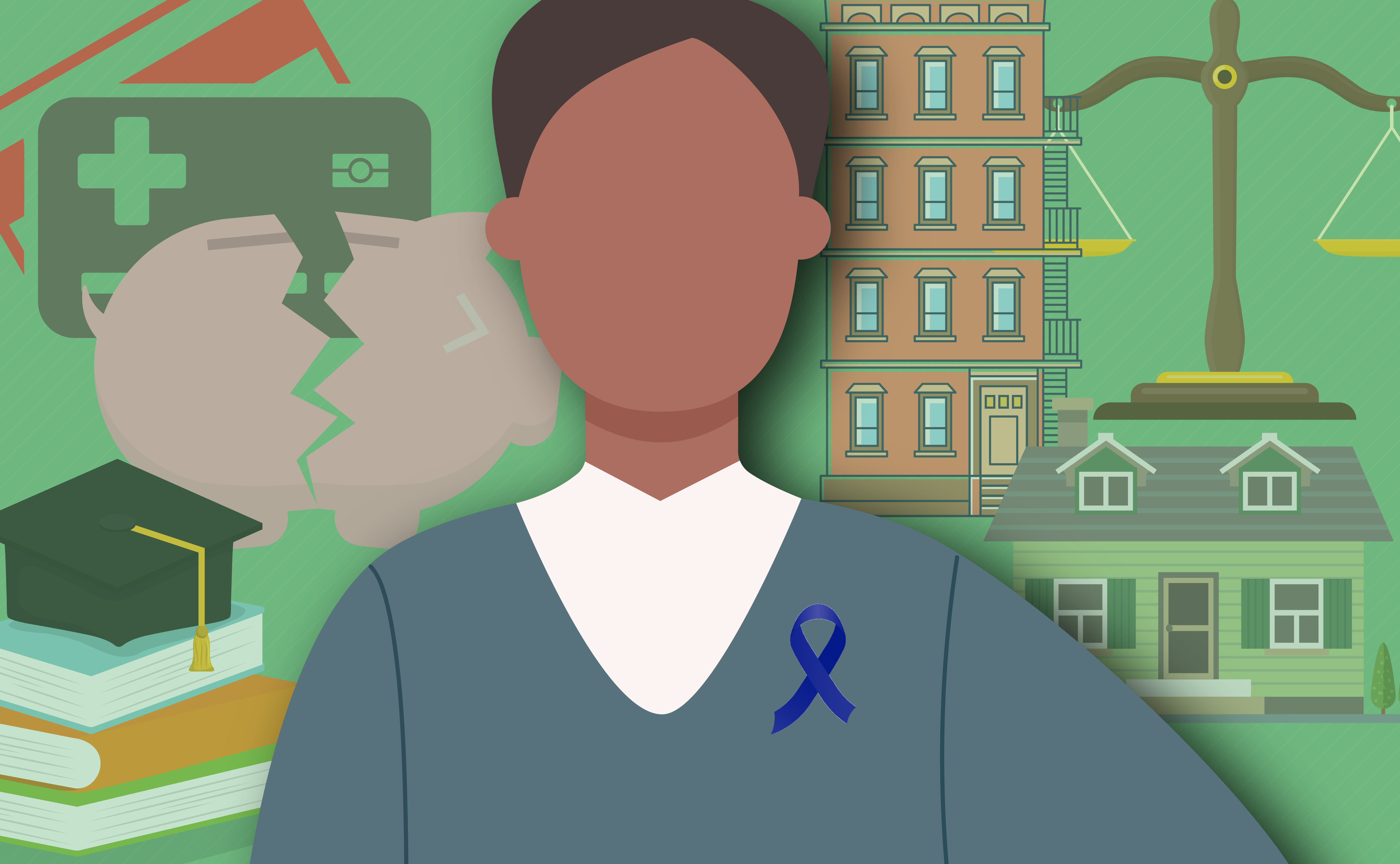Did you know that colorectal cancer is the second leading cause of cancer deaths among men and women combined in the US? March marks Colorectal Cancer Awareness Month, and we are working with our partners at Exact Sciences, the makers of Cologuard®, to help raise awareness about the disease. We’ll be sharing crucial information on the importance of screening, details about who is most at risk, and how you can take action to best ensure early detection and prevention of the disease.
Imagine someone who has just been diagnosed with colorectal cancer. How old are they? What do they look like? According to the American Cancer Society, African American men are the population most likely to be diagnosed with and die from colorectal cancer. Colorectal cancer impacts men and women of all races, so why are Black Americans 20% more likely to develop colorectal cancer than their white counterparts, and almost 40% more likely to die from it?
There is a well-deserved history of mistrust among Black Americans when it comes to healthcare. Examples range from the barbaric practice of medical experimentation on enslaved people, to the forced and coerced sterilization of Black women throughout the 20th century (which was a practice used until as recently as 2011 among female prisoners in California), to the now notorious Tuskegee Syphilis Experiment, during which the American government promised a group of impoverished African American men free healthcare but instead withheld treatment to study the long term impacts of untreated syphilis.
The impact of these atrocities are still felt by African Americans today, and the resulting mistrust in medical care has had devastating effects, which may extend to colorectal cancer screening. According to Dr. Durado Brooks, Deputy Chief Medical Officer of Screening for Exact Sciences, a significant contributor to the racial mortality disparity from colorectal cancer is the fact that African Americans are diagnosed at later stages. The less likely a patient is to visit the doctor for a regular screening or because they are experiencing symptoms, the later that patient is diagnosed, and the less effective treatment is.
In addition to medical mistrust, there are a number of other factors that contribute to the higher rate of colorectal cancer deaths among African Americans, most of which can be traced back to a history of systemic racism resulting in an alarming healthcare gap. Some of these factors include inadequate access to healthcare in vulnerable communities, dietary differences, tobacco use, obesity, and an increased likelihood to have diabetes. The most important and most devastating contributing factor to consider is poverty. Dr. Brooks puts it bluntly: “Being poor in the US, regardless of your race or ethnicity, increases your risk of all cancers. If you are uninsured, your likelihood of being screened is, at best, about half of insured people.” Black Americans are more than twice as likely as white Americans to fall below the poverty line.
This is why, according to Brooks, it is crucial that African Americans understand that there are multiple colorectal screening options. “There are many people who don’t have access to a colonoscopy because of lack of insurance, geography, or the inability to miss a day of work.” Others may be averse to the idea of a colonoscopy in general. “Although we don’t have really good data that say Black men are less likely than White or Hispanic men to undergo a colonoscopy, there are some men who think it seems too invasive and should be offered other screening options.”
The option for at home screening using a product like Cologuard® offers a solution for those unable or unwilling to get a colonoscopy, but the responsibility of relaying all screening options falls on healthcare providers: “Providers need to be aware of the fact that stool testing, and Cologuard® in particular, is an effective and sensitive approach to colorectal cancer screening for adults 45 and older at average risk for colon cancer,” says Dr. Brooks. “Patients should be made aware that there are multiple options for colorectal cancer screenings, and that they have the ability to make a choice based on their particular values and preferences, and what they are eligible for.”
Dr. Brooks also underscores the urgency of understanding family history. “If you have a family history of the disease your risk is even higher, and you will need to get screened even earlier than the average person. The preferred screening option for high risk patients is a colonoscopy.” The only way you’ll know if you have a family history is if your family is talking about it: “A surprising number of my patients who have been diagnosed with colorectal cancer found out that a parent or sibling had cancer or a precancerous polyp only after they were diagnosed.” Dr. Brooks also stresses that even if you have no family history of the disease, you should talk to your doctor no later than age 45 about which tests are right for you.
Family history aside, Dr. Brooks recognizes that the burden of responsibility when it comes to getting vulnerable populations screened falls on doctors like him. “We need to be doing a better job of getting the message out about screenings into Black communities. We need to work with channels and organizations that these communities are already engaged with, and that they trust. We need to provide clearer information about the risks of colorectal cancer to these communities. And as clinicians, we need to never discount any of our patients, or downplay their symptoms.”
You can learn more about colorectal cancer and your screening options here.
When it comes to colorectal cancer screening, the best test is the one that gets done. Guidelines recommend several colon cancer screening options for average risk patients, including stool- based tests. If you are 45 and older and at average risk for colon cancer, talk to your doctor to see if Cologuard may be right for you. Rx only. See Cologuard.com for Important Risk Information.
Written by Emily Pinto









